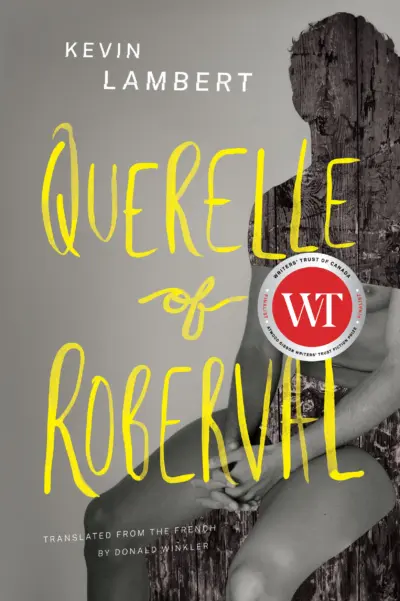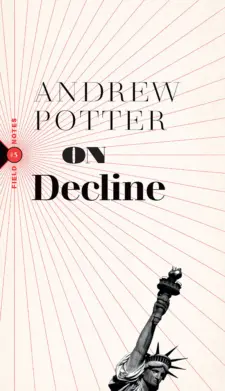Description
Shortlisted for the Atwood Gibson Writers’ Trust Fiction Prize
Homage to Jean Genet’s antihero and a brilliant reimagining of the ancient form of tragedy, Querelle of Roberval, winner of the Marquis de Sade Prize, is a wildly imaginative story of justice, passion, and murderous revenge.
As a millworkers’ strike in the northern lumber town of Roberval drags on, tensions start to escalate between the workers—but when a lockout renews their solidarity, they rally around the mysterious and magnetic influence of Querelle, a dashing newcomer from Montreal. Strapping and unabashed, likeable but callow, by day he walks the picket lines and at night moves like a mythic Adonis through the ranks of young men who flock to his apartment for sex. As the dispute hardens and both sides refuse to yield, sand stalls the gears of the economic machine and the tinderbox of class struggle and entitlement ignites in a firestorm of passions carnal and violent. Trenchant social drama, a tribute to Jean Genet’s antihero, and a brilliant reimagining of the ancient form of tragedy, Querelle of Roberval, winner of France’s Marquis de Sade Prize, is a wildly imaginative story of justice, passion, and murderous revenge.
Audiobook read by Nicolas Van Burek
Praise for Querelle of Roberval
“It has finally arrived: the erotic Québécois novel about labor conflict that we’ve all been waiting for … The book is written in an icy style. Try to find a surplus adjective—I dare you. It is not for the squeamish but (or rather, and) is easily one of the best novels I’ve read this year.”—Molly Young, New York Times
“Kevin Lambert’s fearless novel is a profane, funny, bleak, touching, playful, and outrageous satire of sexual politics, labour, and capitalism. In ecstatic and cutting prose, it gleefully illuminates both the broad socio-political tensions of life in a Quebec company town and the intimate details of sex, lust, loneliness, and gay relationships in such a place. Like its central character, the book is brash, beautiful, quasi-mythic, and tragic. Most improbably, for all its daring and provocation, Querelle of Roberval is lyrically, even tenderly written.”—Judge’s citation for the 2022 Atwood Gibson Writers’ Trust Fiction Prize
“Lambert’s excavation into the depths of desire and provocation is as thrilling as it is disturbing, as beautiful as it is revolting. This is a difficult balance to manage, yet it may well be the key to his success.”—Literary Review of Canada
“Lambert’s prose, seamlessly rendered in English by Donald Winkler, meets all the demands of an ambitiously structured work …. With equal facility he can go full-on granular … or big-picture poetic, taking off on flights of numinous lyricism.”—Globe and Mail
“Febrile, postmodern to the bone and unexpectedly affecting, the novel is a startling, mile-a-minute performance.”—Toronto Star
“Querelle of Roberval transplants legendary French novelist Jean Genet’s priapic queer sailor from his 1947 novel, Querelle de Brest, to contemporary Lac St-Jean and sets him to work in a sawmill in the middle of a bitter syndical struggle with a rapacious boss. The most brilliant, imaginative, phantasmagorical and incendiary novel of the year.”—Will Aitken, for the Globe and Mail
“As this off-putting yet attractively written novel explores both meanings of the word ‘union,’ sex and domination are presented as conjoined compulsions that can lead to brutal forms of ecstasy.”—Sam Sacks, The Wall Street Journal
“Sexually explicit, graphically violent, and surprisingly lyrical, Lambert’s second novel, in a fluid and furious translation by Donald Winkler, is the most audacious work of fiction published in the English language this year.”—Steven W. Beattie, Quill & Quire‘s Books of the Year
“A vibrant storm of gossip and myth … The language of the novel is rich and evocative, a compliment to both Lambert’s and Winkler’s instincts for poetry. Lambert displays his linguistic skill equally in images of the erotic and the abject, in a prose that entices and disturbs at the same time.”—Montreal Review of Books
“Unabashedly thrusts and skewers its way to its end … Lambert’s Querelle of Roberval is far more than a titillating romp sniffing around the blades, bar stools, and crotches of beleaguered labour; it is a blistering hunt for a liberation that may never come.”—The Fiddlehead
“A prodigious talent … something of a cross between Stephen King and Alice Munro. If these two had a child-writer, they’d spawn Lambert. The grisly viciousness and the explicit gore of the former, and the psychological savvy, depth of motive, and ironic tone of the latter.”—Getting Lit with Linda
“An inherently fascinating and memorable read from first page to last.”—Midwest Book Review
“Blazingly ambitious … Lambert’s vision is incendiary and deliberately, provocatively brutal. Revolutionary.”—ARTS Fuse
“This English translation will certainly garner the author an expanded fanbase, particularly those who may have missed out on his smashing debut You Will Love What You Have Killed … Definitely not for the easily offended, only fans of the kind of bizarre, perverse, and controversially provocative fiction that put writers like Dennis Cooper on the literary map will enjoy discovering Lambert’s graphic yet lyrical language style, unfettered storytelling bravado, and, of course, his intense, daring vision.”—The Bay Area Reporter
“Kevin Lambert’s novel Querelle of Roberval is nothing short of sensational.”—The Link
“I recommend … to those of you who dare.”—Consumed by Ink
“Structured as a reimagining of Greek tragedy, Querelle of Roberval is a book that reads like a swift, vivid dream. The language is direct and cuts straight to the bone, while dealing with passions both personal and professional. The central conflict of the novel takes place around a labor strike at the local lumber mill, and the magnetic presence of newcomer and sexual renegade, Querelle, who alternately intrigues and infuriates the community. Brutal and beautiful by turns, this novel will grip readers from the first sentence all the way to its shocking conclusion.”—David Vogel, Buzzfeed
“The translation by Donald Winkler, who was also responsible for the previous novel, is of the highest quality and once again stands out for its richness and respect of local color … Provocative and deliciously irreverent, the novel can be savored with an almost satisfying pleasure, commensurate with the disproportion of the conflicts and questionings that agitate it.”—Benoit Migneault, Fugues
“The most savage literary protest of this season … This 27-year-old author has already established his voice through an unusual gesture: driving the sexual question into the hide of the social movement … His outrageous prose is justified by the novel’s project: exploiting the liberating potential of the body laid bare, the subversive power of raw pleasure. Here sex becomes a tool of sabotage, it dynamites the orderly linguistic formulas of ideology, love or militant slogans.”—Le Monde (Paris)
“At the age of 27, this young Canadian author has published a raw, militant ‘syndical fiction.’ A powerful novel in which sociopolitical criticism interrogates desire and questions of gender identity. A multitude of characters gravitate towards the fascinating Querelle, the archetype of the beautiful gay male; all the young men of the region parade through his bed, utterly bewitched.”—Télérama (France)
“Lambert explodes stereotypes and taboos. I’m always partial to a writer who takes risks, who dares to find beauty in the blemishes of our souls and our desires.”—Heather O’Neill, Chatelaine
“Querelle of Roberval represents the mature confirmation of Lambert’s style, a highly poetic oral language … Lambert’s writing is so alive that one reads the novel in a single sitting with the impression of having been run over by a logging truck and a horde of libidinous young men at the same time. You come out over it feeling bruised and thrilled.”—La Presse (Montreal)
“It’s a pleasure to read this novel for its language and the energy it unleashes.”—Le Devoir (Montreal)
“A simple review can hardly do justice to the richness and depth of this bountiful, powerful and wildly excessive novel, with its feverish, compulsive, but always controlled, writing. “—Lettres Québécoises
“A bitter, yet empathetic, social novel.”—University of Toronto Quarterly









